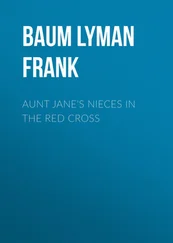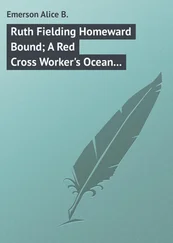Clara Barton - A Story of the Red Cross; Glimpses of Field Work
Здесь есть возможность читать онлайн «Clara Barton - A Story of the Red Cross; Glimpses of Field Work» — ознакомительный отрывок электронной книги совершенно бесплатно, а после прочтения отрывка купить полную версию. В некоторых случаях можно слушать аудио, скачать через торрент в формате fb2 и присутствует краткое содержание. Жанр: foreign_antique, foreign_prose, на английском языке. Описание произведения, (предисловие) а так же отзывы посетителей доступны на портале библиотеки ЛибКат.
- Название:A Story of the Red Cross; Glimpses of Field Work
- Автор:
- Жанр:
- Год:неизвестен
- ISBN:нет данных
- Рейтинг книги:4 / 5. Голосов: 1
-
Избранное:Добавить в избранное
- Отзывы:
-
Ваша оценка:
- 80
- 1
- 2
- 3
- 4
- 5
A Story of the Red Cross; Glimpses of Field Work: краткое содержание, описание и аннотация
Предлагаем к чтению аннотацию, описание, краткое содержание или предисловие (зависит от того, что написал сам автор книги «A Story of the Red Cross; Glimpses of Field Work»). Если вы не нашли необходимую информацию о книге — напишите в комментариях, мы постараемся отыскать её.
A Story of the Red Cross; Glimpses of Field Work — читать онлайн ознакомительный отрывок
Ниже представлен текст книги, разбитый по страницам. Система сохранения места последней прочитанной страницы, позволяет с удобством читать онлайн бесплатно книгу «A Story of the Red Cross; Glimpses of Field Work», без необходимости каждый раз заново искать на чём Вы остановились. Поставьте закладку, и сможете в любой момент перейти на страницу, на которой закончили чтение.
Интервал:
Закладка:
Dear Miss Barton:
We read your nice letter in the Dispatch and we would like very much to see that house called "The Little Six," and we little six are so glad that we helped six other little children, and we thank you for going to so much trouble in putting our money just where we would have put it ourselves. Some time again when you want money to help you in your good work call on "The Little Six."
Joe Farrar, twelve years old.
Florence Howe, eleven years old.
Mary Barton, eleven years old.
Reed White, eleven years old.
Bertie Ainsworth, ten years old.
Loyd Barton, seven years old.
These children had given a public entertainment for the benefit of the flood sufferers. They themselves suggested it, planned and carried it out, and raised fifty-one dollars and twenty-five cents, which they sent to the editor of the Eric Dispatch, asking him to send it "where it would do the most good." The Dispatch forwarded it to the president of the Red Cross, with an account of the entertainment given by "The Little Six."
The entire matter was too beautiful and withal unique, to meet only a common fate in its results. I could not, for a moment, think to mingle the gift of the little dramatists with the common fund for general distribution, and sought through all these weeks for a fitting disposition to make of it, where it would all go in some special manner to relieve some special necessity. I wanted it to benefit some children who had "wept on the banks" of the river, which in its madness had devoured their home.
As we neared that picturesque spot on the Illinois side of the Ohio, known as "Cave-in Rock," we were hailed by a woman and her young daughter. The boat "rounded to" and made the landing and they came on board – a tall, thin, worn woman in tattered clothes, with a good but inexpressibly sad face, who wished to tell us that a package which we had left for her at the town on our way down had never reached her. She was a widow – Mrs. Plew – whose husband, a good river pilot, had died from overwork on a hard trip to New Orleans in the floods of the Mississippi two years before, leaving her with six children dependent upon her, the eldest a lad in his "teens," the youngest a little baby girl. They owned their home, just on the brink of the river, a little "farm" of two or three acres, two horses, three cows, thirty hogs, and a half hundred fowls, and in spite of the bereavement, they had gone on bravely, winning the esteem and commendation of all who knew them for thrift and honest endeavor. Last year the floods came heavily upon them, driving them from their home, and the two horses were lost. Next the cholera came among the hogs and all but three died. Still they worked on; and held the home. This spring came the third flood. The water climbed up the bank, crept in at the door, and filled the lower story of the house. They had nowhere to remove their household goods, and stored them in the garret carefully packed, and went out to find a shelter in an old log house near by, used for a corn-crib. Day by day they watched the house, hailed passing boats for news of the rise and fall of the water above, always trusting the house would stand – "and it would," the mother said, "for it was a good, strong house, but for the storm." The winds came, and the terrible gale that swept the valley like a tornado, with the water at its height, leveling whole towns, descended and beat upon that house, and it fell. In the morning there was no house there, and the waves in their fury rushed madly on. Then these little children "stood and wept on the banks of the river," and the desolation and fear in the careful mother's heart, none but herself and her God can know.
They lived on in the corn-crib, and it was from it they came to hail us as we passed to-day. Something had been told us of them on our downward trip, and a package had been left them at "Cave-in Rock," which they had not received. We went over shoe-tops in mud to their rude home, to find it one room of logs, an old stone chimney, with a cheerful fire of drift-wood and a clean hearth, two wrecks of beds, a table, and two chairs which some kind neighbor had loaned. The Government boats had left them rations. There was an air of thrift, even in their desolation, a plank walk was laid about the door, the floor was cleanly swept, and the twenty-five surviving hens, for an equal number were lost in the storm, clucked and craiked comfortably about the door, and there were two-and-a-half dozen fresh eggs to sell us at a higher rate than paid in town. We stood, as we had done so many scores of times during the last few weeks, and looked this pitiful scene in the face. There were misfortune, poverty, sorrow, want, loneliness, dread of the future, but fortitude, courage, integrity, and honest thrift.
"Would she like to return to the childhood home in Indiana?" we asked the mother, for we would help them go.
"No," she said tenderly. "My husband lived and died here. He is buried here, and I would not like to go away and leave him alone. It won't be very long, and it is a comfort to the children to be able to visit his grave. No, I reckon we will stay here, and out of the wreck of the old house which sticks up out of the mud, we will put up another little hut, higher up on the bank out of the way of the floods, and if it is only a hut, it will be a home for us and we will get into it, and make our crop this year."
There were no dry eyes, but very still hearts, while we listened to this sorrowful but brave little speech, made with a voice full of tears.
Our thoughtful field agent, Dr. Hubbell, was the first to speak.
"Here are six children," he said with an inquiring glance at me.
No response was needed. The thing was done. We told the mother the story of "The Little Six" of Waterford, and asked her if that money with enough more to make up one hundred dollars would help her to get up her house? It was her turn to be speechless. At length with a struggling, choking voice she managed to say – "God knows how much it would be to me. Yes, with my good boys I can do it, and do it well."
We put in her hands a check for this sum, and directed from the boat clean boxes of clothing and bedding, to help restore the household, when the house should have been completed.
Before we left her, we asked if she would name her house when it should be done? She thought a second, and caught the idea.
"Yes," she replied quickly, with a really winsome smile on that worn and weary face, "yes, I shall name it 'The Little Six.'"
We came to Pittsburg, discharged our empty boat, bade a heart-breaking good-by to our veteran volunteers from Evansville, who had shared our toil and pain and who would return on the boat, we taking train once more for Washington. We had been four months on the rivers, among fogs, rain, damp, and malaria – run all manner of risks and dangers, but had lost no life nor property, sunk no boat, and only that I was by this time too weak to walk without help – all were well.
Through the thoughtfulness of our new societies – St. Louis and Chicago – we had been able to meet our share of the expenses, and to keep good the little personal provision we started with, and were thus ready to commence another field when it should come.
On arriving home I found that I was notified by the International Committee of Geneva, that the Fourth International Conference would be held in that city in September, and I was requested to inform the United States Government, and ask it to send delegates. With the aid of a borrowed arm, I made my way up the steps of the Department of State (that was before the luxury of elevators) and made my errand known to Secretary Frelinghuysen, who had heard of it and was ready with his reply:
"Yes, Miss Barton, we will make the needful appointment of delegates to the International Conference, and I appoint you as our delegate."
Читать дальшеИнтервал:
Закладка:
Похожие книги на «A Story of the Red Cross; Glimpses of Field Work»
Представляем Вашему вниманию похожие книги на «A Story of the Red Cross; Glimpses of Field Work» списком для выбора. Мы отобрали схожую по названию и смыслу литературу в надежде предоставить читателям больше вариантов отыскать новые, интересные, ещё непрочитанные произведения.
Обсуждение, отзывы о книге «A Story of the Red Cross; Glimpses of Field Work» и просто собственные мнения читателей. Оставьте ваши комментарии, напишите, что Вы думаете о произведении, его смысле или главных героях. Укажите что конкретно понравилось, а что нет, и почему Вы так считаете.












